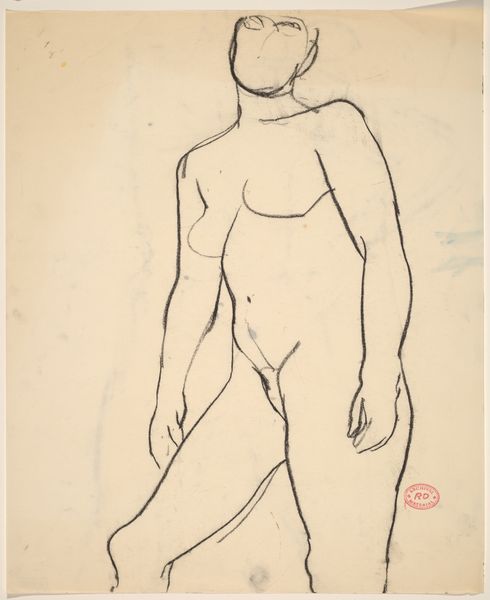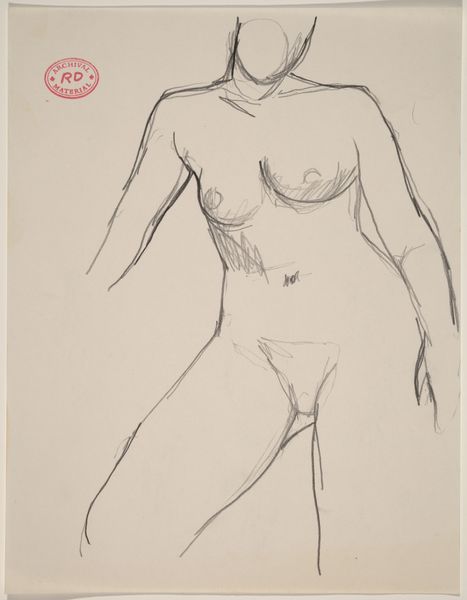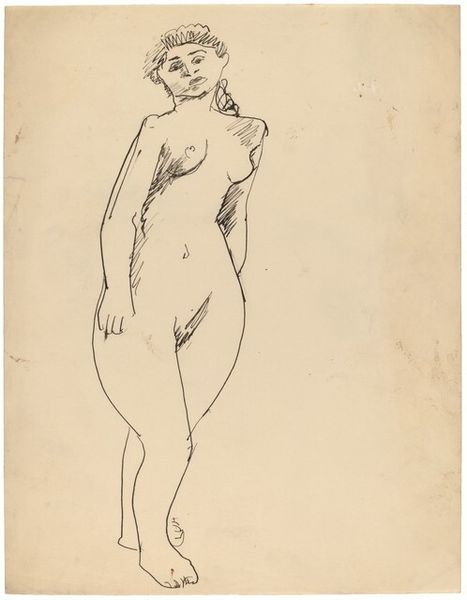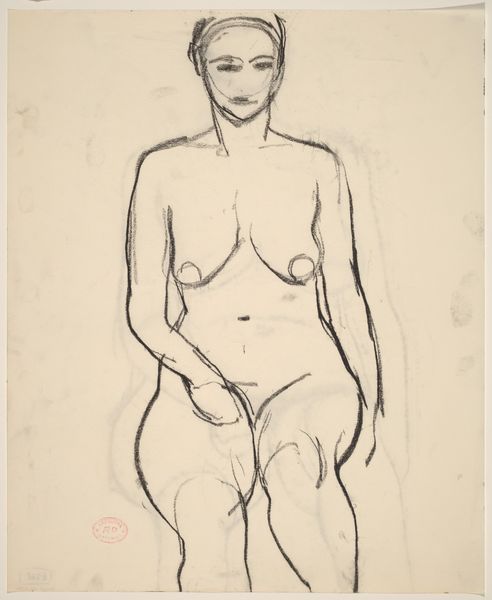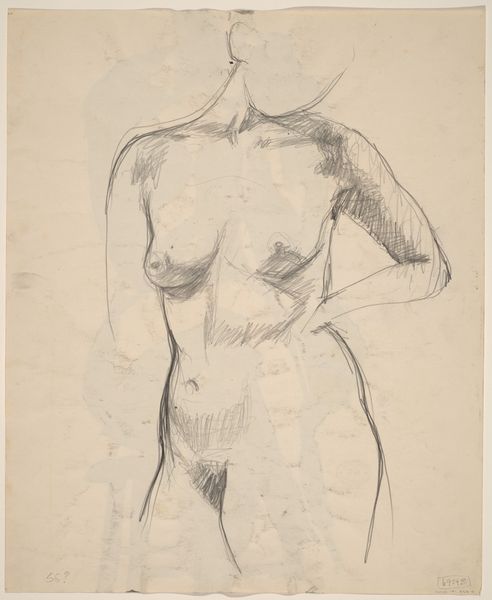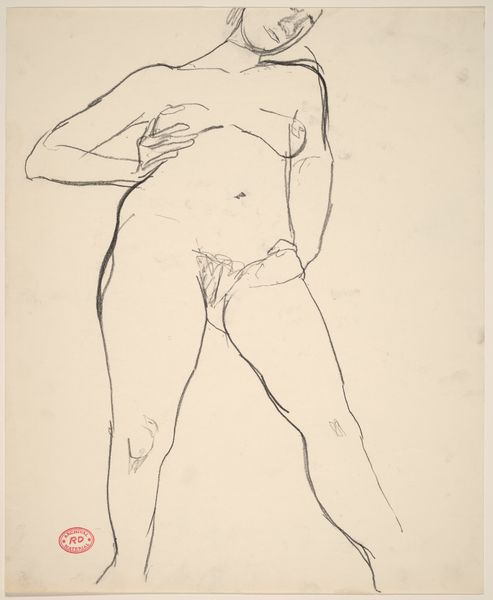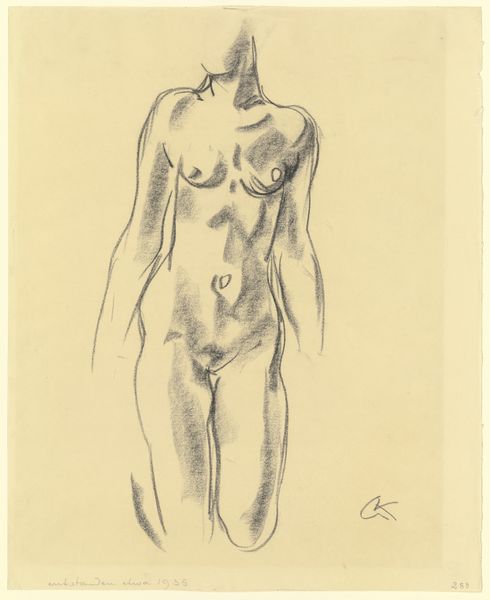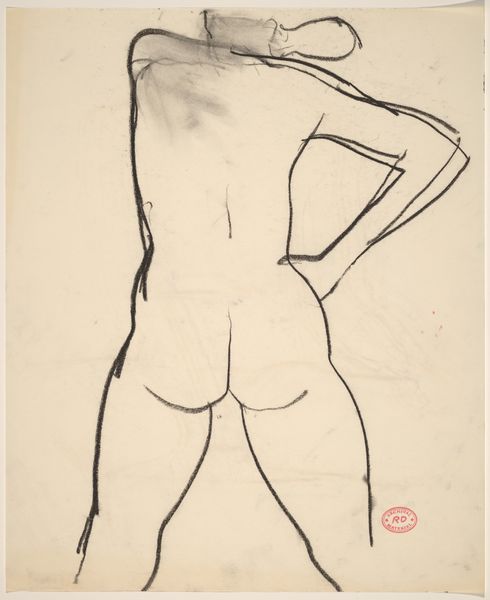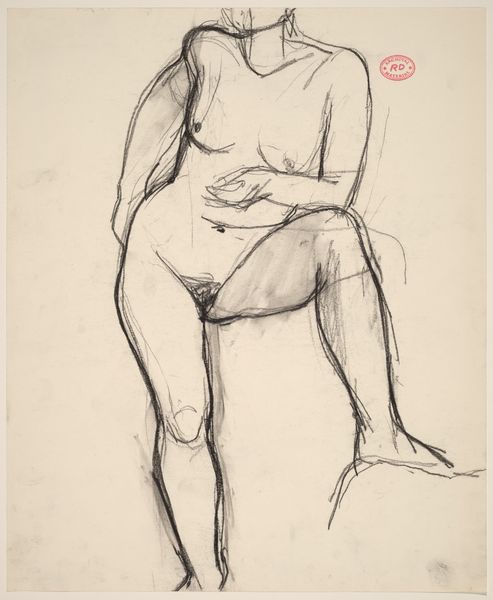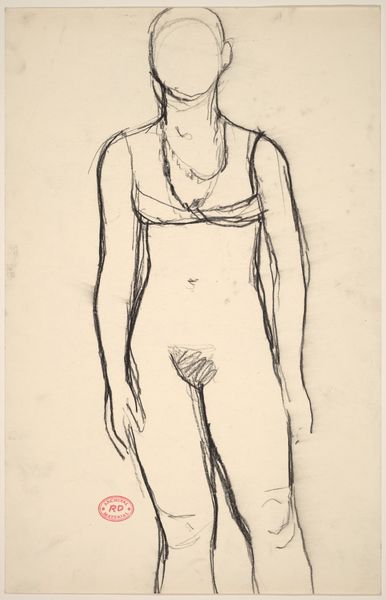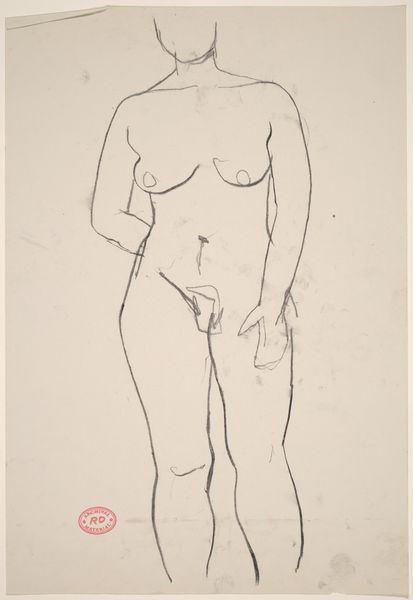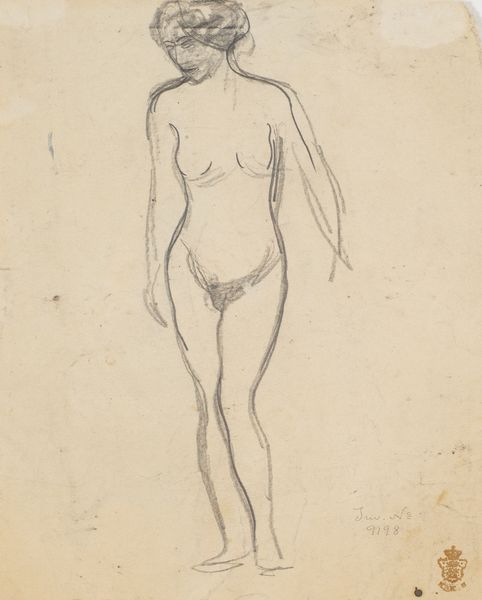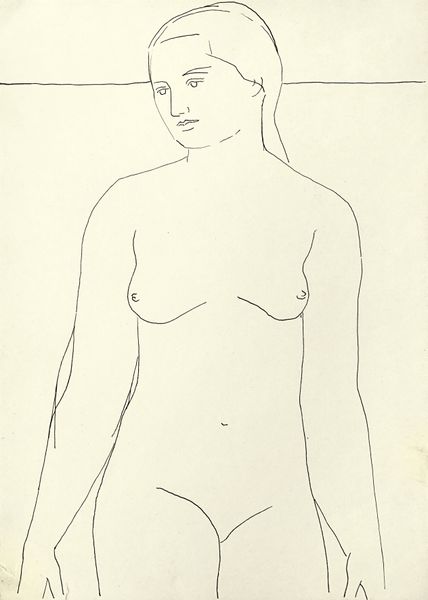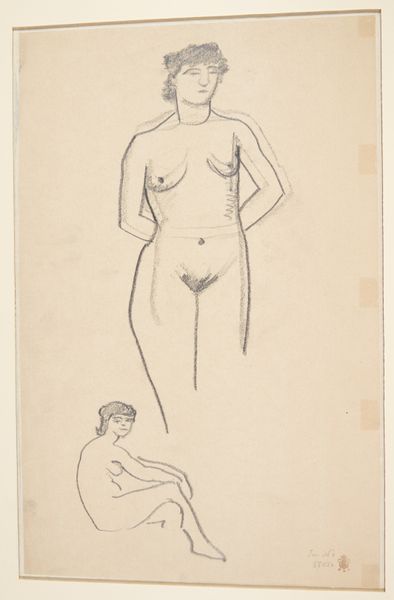![Untitled [standing nude with arms at her sides] by Richard Diebenkorn](/_next/image?url=https%3A%2F%2Fd2w8kbdekdi1gv.cloudfront.net%2FeyJidWNrZXQiOiAiYXJ0ZXJhLWltYWdlcy1idWNrZXQiLCAia2V5IjogImFydHdvcmtzLzhlOWQ2ZjNjLTNhZjQtNDMyNC04ZTk4LWNkYWQ3NmM3ZjE2NS84ZTlkNmYzYy0zYWY0LTQzMjQtOGU5OC1jZGFkNzZjN2YxNjVfZnVsbC5qcGciLCAiZWRpdHMiOiB7InJlc2l6ZSI6IHsid2lkdGgiOiAxOTIwLCAiaGVpZ2h0IjogMTkyMCwgImZpdCI6ICJpbnNpZGUifX19&w=3840&q=75)
Untitled [standing nude with arms at her sides] 1955 - 1967
0:00
0:00
drawing, charcoal
#
portrait
#
drawing
#
bay-area-figurative-movement
#
charcoal
#
nude
#
realism
Dimensions: overall: 42.9 x 35.2 cm (16 7/8 x 13 7/8 in.)
Copyright: National Gallery of Art: CC0 1.0
Curator: This is a drawing by Richard Diebenkorn, made sometime between 1955 and 1967. It’s an untitled nude figure study rendered in charcoal. Editor: I find it really intriguing. The figure has this wonderful sense of groundedness, like a quiet monument. But then the facelessness makes me wonder, who is she, and why can’t we see her identity? Curator: It's a common critique that the female nude is often depicted anonymously or generically, existing primarily as an object for the male gaze. It reduces a woman to her body, stripping away individuality and agency. Does Diebenkorn play into that tradition here? Editor: Potentially, although Diebenkorn does often work from life, suggesting some relationship, a collaboration maybe, between artist and sitter. Perhaps this lack of a face isn’t about objectification so much as…abstraction? The point isn’t necessarily *who* she is, but the form of her body, its weight and its contours, right? Curator: That is true, the realistic pose with arms to her side also strikes me as intentionally trying not to exoticize or over-eroticize the nude, which was revolutionary back in the day. The work attempts a sort of frank simplicity in depicting the body without embellishment, even using dark charcoal outlines and some visible erasures. Editor: True! This makes it about presence more than pleasure. It gives her agency to just be… Curator: Absolutely. Diebenkorn allows her existence. A moment captured simply, authentically. He wasn't making grand statements with this piece. It felt more like an exploration, perhaps, of the human form as seen in a certain era. A very specific moment of what was deemed beautiful. Editor: It feels like a privilege to have even this glimpse. The nude invites the question: What are the power dynamics present when artists, of any gender, depict the human form? Curator: It seems so, but maybe it is also just art history catching up, isn't it? We are, finally, asking all the questions the art always prompted. Editor: Perhaps, but without the benefit of history, she remains unheard. I hope we get better at listening.
Comments
No comments
Be the first to comment and join the conversation on the ultimate creative platform.
